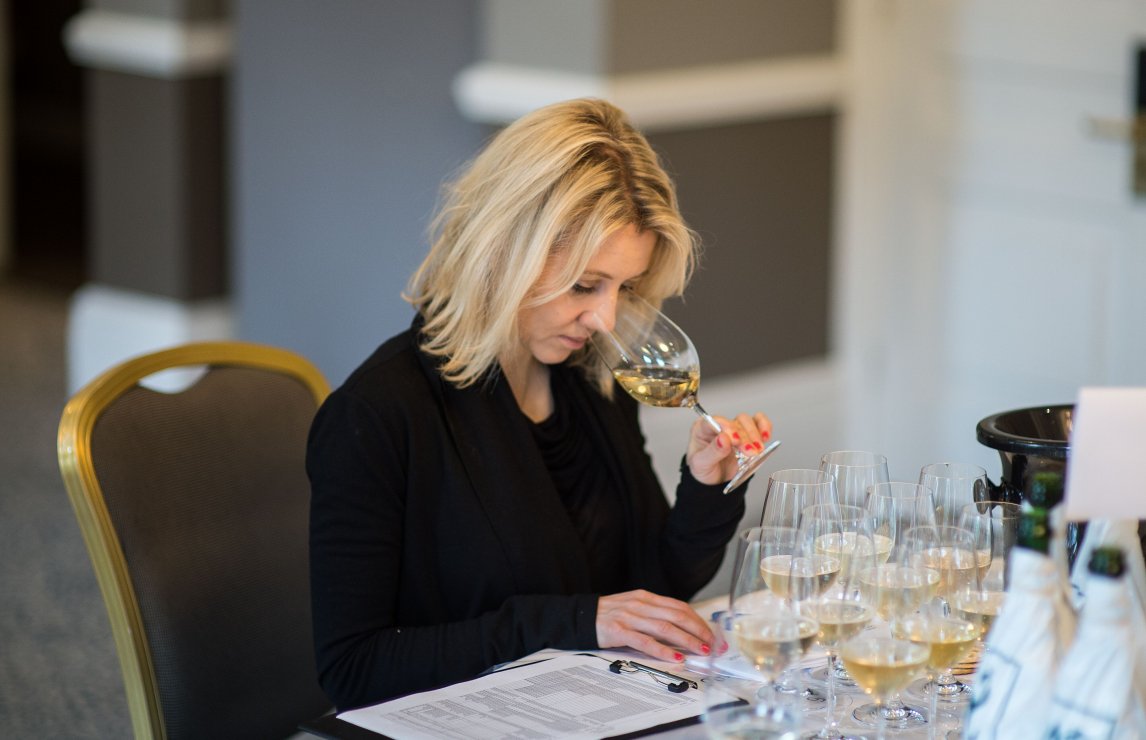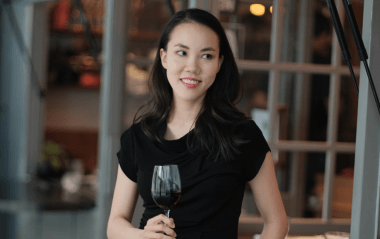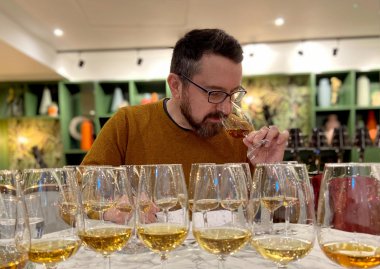IWSC Judges' Insight: Rebecca Palmer
Rebecca Palmer is Associate Director & Buyer at Corney & Barrow, in the UK and Asia. Having fallen into the wine trade ‘by chance’, 25 years later she has a diverse role, and heads up a busy buying team with a massive remit spanning producers all around the globe. ‘I am endlessly captivated by the world of wine, and if I do have a mission in the trade, it is to help bring that world to a wider audience, to encourage more and different people into wine in a way that is inclusive rather than intimidating, to educate and entertain without dumbing down. Wine is a delight and it should be fun’.
Where did you grow up?
I am an Essex girl. I was born in Colchester in northeast Essex, and grew up in a village a few miles away. But I have lived in London since I graduated.
Where did you train?
I have had a number of distinct and different training grounds. I also feel I’m always in training for something.
- My first job in the trade was with a small wine agency, Mistral Wines (later bought by Berry Bros), which specialised in Southern French wines. We sold to multiples and high street specialists like Majestic, Oddbins and Threshers, independent merchants and wholesalers like Matthew Clark. We also imported a bit of stock to supply a few on-trade customers. Mistral was run by a married couple, Anthony and Novella Lacey, and then there was me, and a book-keeper a day a week, so the structure was tiny. I had to get involved in everything, and that gave me insights into so many different aspects of the industry. One moment I would be talking to François Perrin, the next moment I would be head down in a label-design project with a supermarket buyer, answering queries from a journalist, faxing invoices, chasing freight forwarders, sorting quality control issues, filling in an Intrastat, writing a brochure, manning a stand at a tasting, booking flights, unpacking boxes.
- I then spent three years at Bibendum first in the off-trade sales department, then as a brand manager for European wines. As a far bigger operation it gave me a sense of the potential reach of the trade, and broadened my experience of wine. It was busy and buzzy, full of big personalities.
- I then went freelance for three years, encouraged by my then partner, who ran the design agency Stranger & Stranger which has gone on to specialise in wine and spirits. I helped develop new business for them, and PR, and got involved in brand development. At the same time I also took on some clients of my own, a mix of new product development, PR, research, selling wine into Russia, match-making Chilean wineries with UK distributors, and a couple of restaurant wine lists.
- At this point I embarked on the Master of Wine course. (I never got it. Trying for your MW is a psychological and physical marathon. It’s like playing tennis with someone much better than you. You can hold your own, pull off the occasional cute drop-shot or smash, but you can’t pull it together to win the match. But I learnt so much, and met so many fascinating and lovely people along the way. I realise it wasn’t for me - I always struggled to balance this with my professional responsibilities and you need to put everything you've got into it. But if you have the drive and determination and can create the circumstances to do it, then nothing should hold you back.)
- Next I became a buyer for Direct Wines. This was my introduction to blending, on long and exhausting buying trips, working out percentages of tanks and barrels of different varietals. There would be dozens of permutations which we would refine and change over and over again late into the night. At first it seemed incomprehensible, like riding in the back of a car with no idea about where we were going or why or how. It took me a while even to recognise the route, and that’s not even close to finding the route yourself. Peter Greet, the head of buying, would take me through the blends explaining how and why they work, then he’d say ‘Bex, you’ll get there, it’s not rocket science’. So when I did finally step into the driving seat and started out from A and got to B it felt astonishing.
- Corney & Barrow has been another important training ground for me. Initially I was taken on as on-trade buyer across the UK and for C&B Wine Bars (now sold). My role expanded and here I am in my 14th year. The company is quite rare in the way it retains people, but what is also different about C&B is the deep sense of values. So much of this is centred on the quality of relationships – with our customers, with our producers, with each other. Honouring those relationships, acting with integrity, bringing a sense of spirit to what we do.
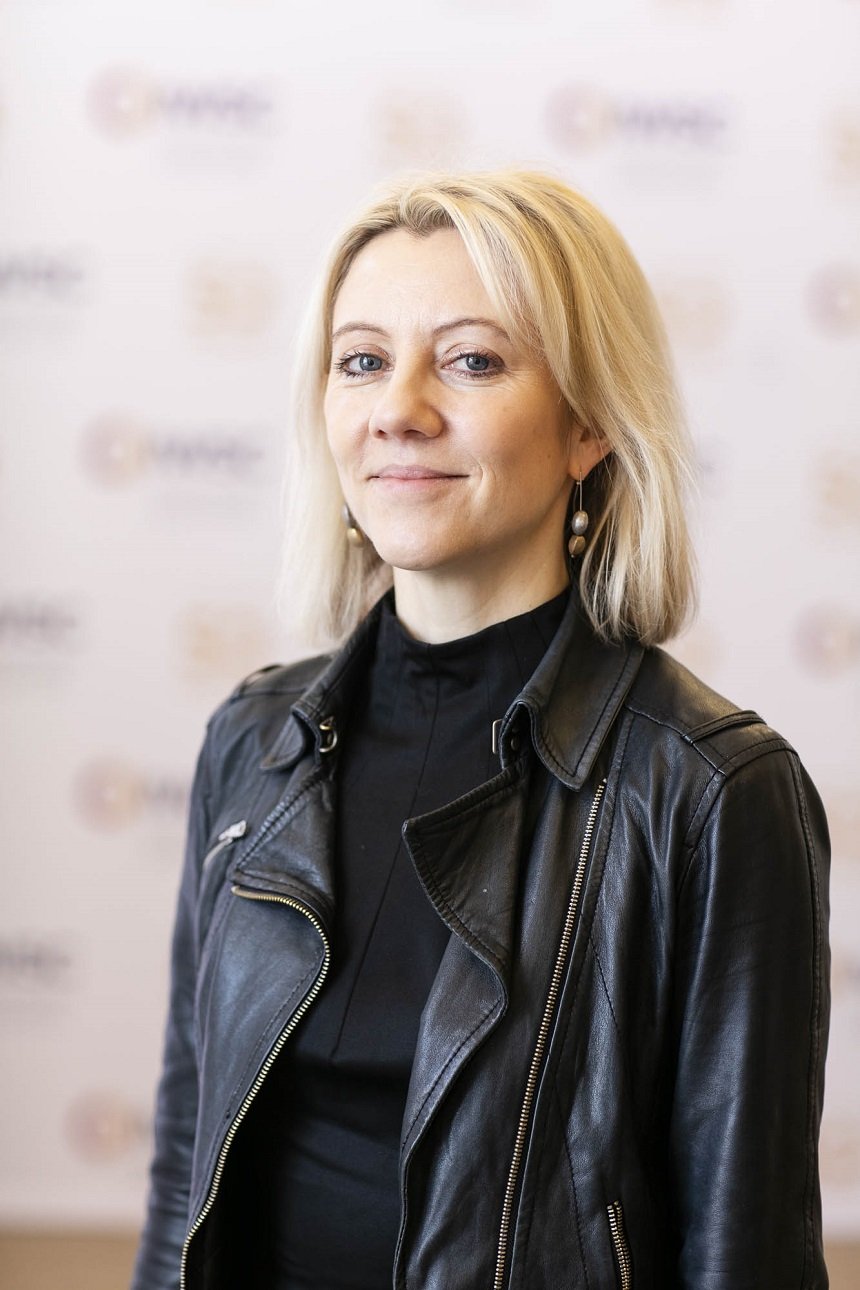
Who was your greatest influence?
- Anthony Lacey at Mistral. It was a small but successful business. Anthony was respected, even loved in the industry - no pushover, but straight and fair, and he talked to everyone in exactly the same way, with decency and kindness.
- Peter Greet, head of buying at Direct Wines, who gave me the break. I learnt so much from working for him, and for the wider company, which was a big animal with so many moving parts, intriguing to be a part of and to see the vast amount of process involved. Peter is a real teacher, pragmatic and patient, with a massive knowledge and perspective on the industry too. He accompanied me on a number of initial buying trips because they were big ones – eg to Chile and Argentina, where we were putting blends together and buying hundreds of thousands of cases. It was Peter – together with the various producers we worked with – who trained me in the part-art part-science of blending.
- Guy Young, managing director at HwCg, then a leading agency company. He was a brilliant operator, friendly and bright and charismatic but with none of the bombast. He told me that being an effective MD was actually very simple and nothing to do with him and all about his team - ‘simply surrounding myself with people better than me’ – and that together they could achieve more than the sum of their parts.
- Deb Worton, marketing director at HwCg, a great role model in an industry where there were not that many women in leading roles. Her energy and drive were an inspiration for me at the time.
- Michael Cox. I loved his energy and charisma. His work with Wines of Chile was truly impressive - the way in which he built consensus with all the different producers and overhauled the whole system. A real legacy.
- I’m also lucky to have colleagues at C&B who influence and inspire me. Particularly my MD, Adam Brett-Smith, who has an innate understanding of the value of relationships and integrity while remaining endlessly curious and very funny. He has also taught me how to recognise a truly great dry martini (perhaps the most vital skill a buyer can have).
What inspired you to join the wine industry?
I didn’t know what to do when I left university. So many of my friends went into management consultancy, banking, brand management with multinationals, but I just didn’t ‘get it’ and I felt a bit lost. Neither of my parents had been businesspeople, both had been teachers and I just didn’t have a sense of a groove. I had toyed with various things such as sport and publishing. But I did know something: I loved the languages I had studied and I wanted to use those in my working life. And I wanted to work with a real product that I thought was interesting, rather than shampoo or loo roll, so when the job for Mistral came up (at the University Careers centre, an ad on a pinboard for someone with strong PA skills, up for running the office of a small wine importer, and with fluent French), I applied.
What was your greatest challenge and how did you overcome it?
Life is a series of challenges; attaining a degree of self-confidence was my greatest. I was surrounded by so many brilliant, apparently confident people at Cambridge and would often wake up in the middle of the night (or a lecture) beset by anxiety, and convinced I was about to be found out. This is classic impostor syndrome. I wish I’d known at the time that so many other people felt the same.
Part of this is nature, but a lot of it is nurture, by which I mean you should teach yourself to stay curious and learn tenacity, and work out the values you want to live and work by. Once you are clear on that, I find, things become more straightforward.
I also gained confidence through my mentors. This is why I feel passionately about coaching younger people. I believe that at all ages, people need to feel that someone cares about their development and wants them to be the best they can be. That’s what inspires me now.
What is your greatest achievement?
The first time I put together a wine blend I was proud of was a pretty good moment. The process is so hard, but it started to become more instinctive, and eventually, at times, I felt I could finally see the way through all those samples, almost without being conscious of it.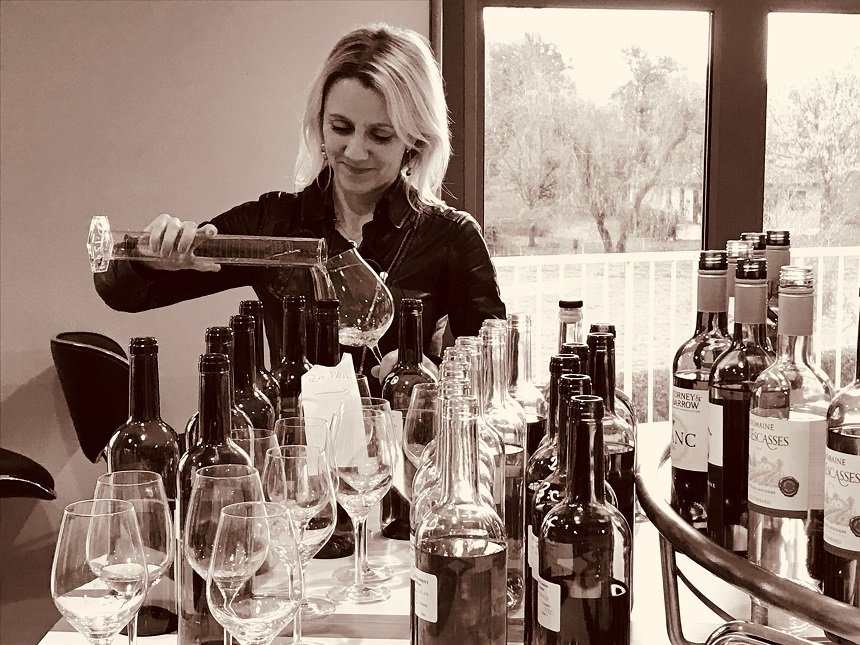
But there are bigger achievements, too – like seeing someone on my team achieve something they thought themselves incapable of. When I can set someone a challenge that I know will stretch them, then see them apply themselves, gain confidence, then wobble a bit, but push on and come out the other side, that’s a wonderful thing. Confidence is built on these victories.
Is there anything that you would do differently?
I sometimes wish I had spent more time living abroad. I did live away as part of my degree but I think it would have been interesting to have spent some time elsewhere. Perhaps a couple of years working for a winery in Chile or Argentina where I could also have got my Spanish fluent, or spent some time somewhere completely different, like Japan.
What advice do you have for someone joining the wine industry?
- Learn a relevant foreign language, to a degree of fluency that will enable you to conduct a business discussion or help you trouble-shoot a supply chain or quality control issue, or negotiate pricing. As a prospective or actual employee it gives you a tremendous advantage.
- Buying is really selling. At Corney & Barrow we get endless CVs from people who say they’ve been a sommelier or in sales but they would prefer to be a buyer because their heart is in buying not selling and they want to get closer to producers. The first people we are selling to as buyers are ourselves, as potential customers. If this were your money, would you spend it? The answer is often surprisingly easy. So buying-selling is on a continuum and ultimately all about customers, finding wines that will delight them, however much they know or don’t know.
- Don’t be afraid to seek out mentors and ask whether they would be prepared to give you some advice. You might not get a huge revelation but they might just strike a match in the dark and one day you’ll realise it illuminated something else.
- Know your strengths and weaknesses. Who and what inspires you, and why? Understand what drags you down and then see what you can learn about yourself before you simply give it up. You might be surprised.
- Life rewards the curious: ask questions and listen. Try to work out how things fit together. Observe, and offer to help. Enthusiasm, hard work and humility will get you a long way.
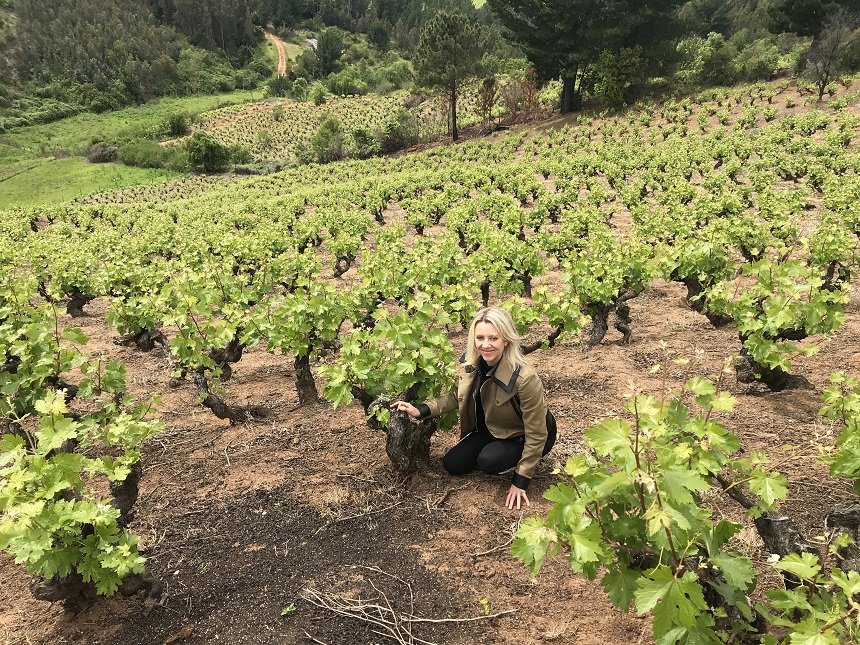
What advice do you have for a producer wanting to get their wine in front of you?
- First and foremost, the wine itself should be of high quality within its category, and at a price that makes sense.
- Storytelling is increasingly important. Tell me what makes your wine special, what need it meets and what you did to make that happen? Make me care, because if you don’t, someone else will.
- Nail your USPs – unique selling points – and understand how to explain them in a way that adds value. A vineyard on such and such a slope, 100 yo vines, whole bunch vinification, amphora ageing – unexplained, these are just features. ‘So what?’ Articulate the benefits, know and be able to defend the value added.
- Take a bit of trouble with the label. In the off-trade (and increasingly online) shelf (or screen) presence is vital. In the on-trade a wine needs to look the part on a table too, particularly given the mark-up.
What is more important, passion or knowledge, and why?
If you’re passionate about a subject, you’re more likely to be curious about it. Passion without knowledge is likely to come across as shallow. On the other hand, plenty of people have encyclopaedic knowledge but no obvious passion for their subject. Curious.
